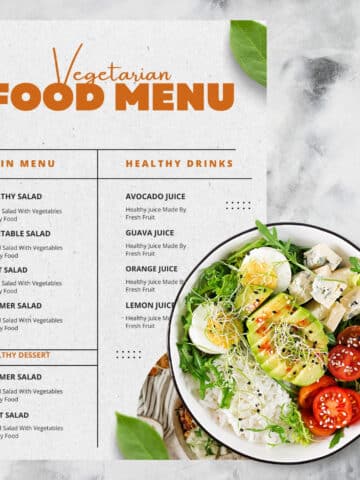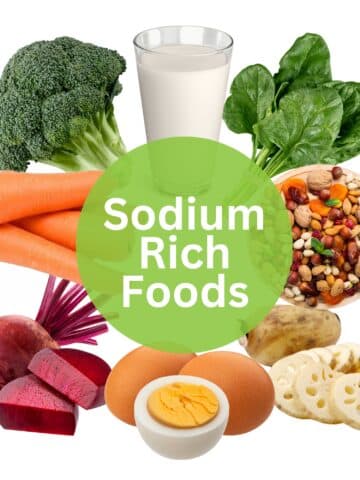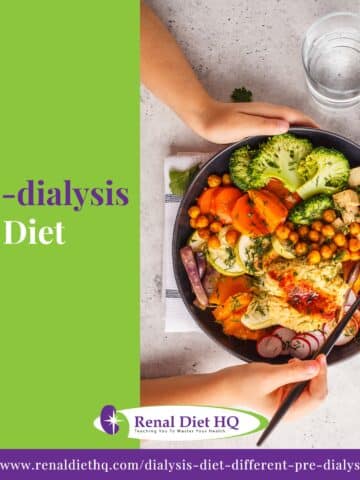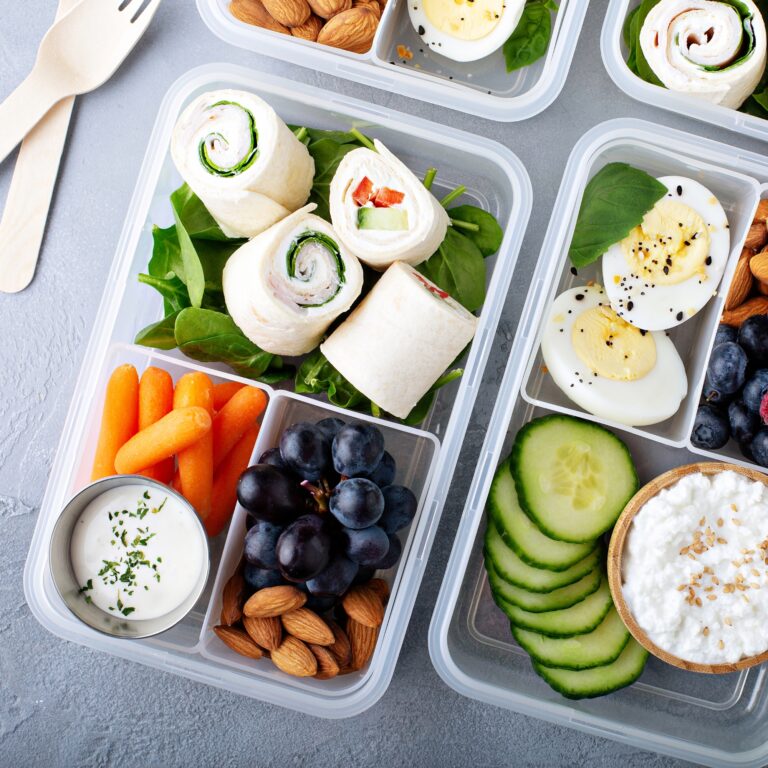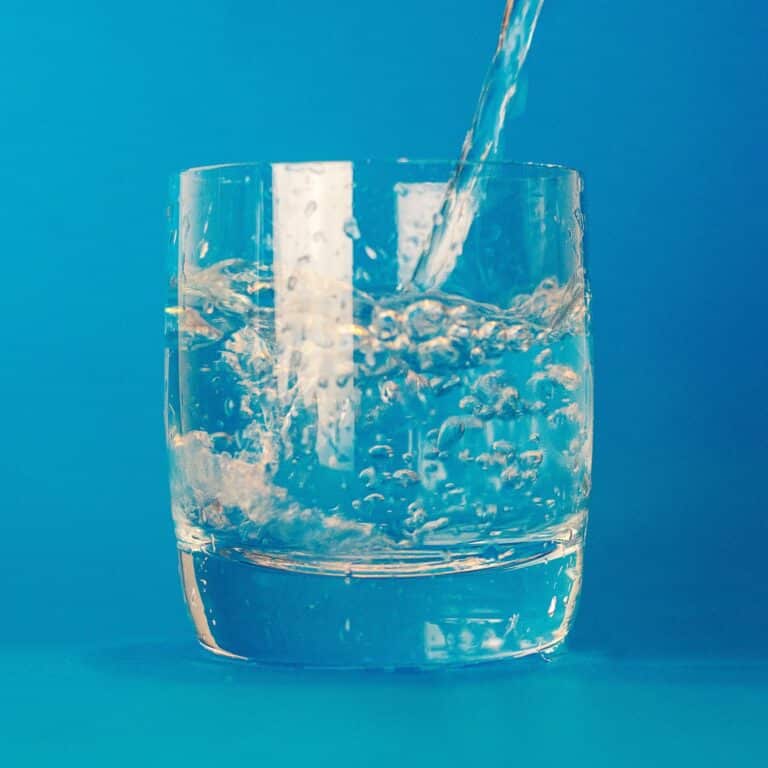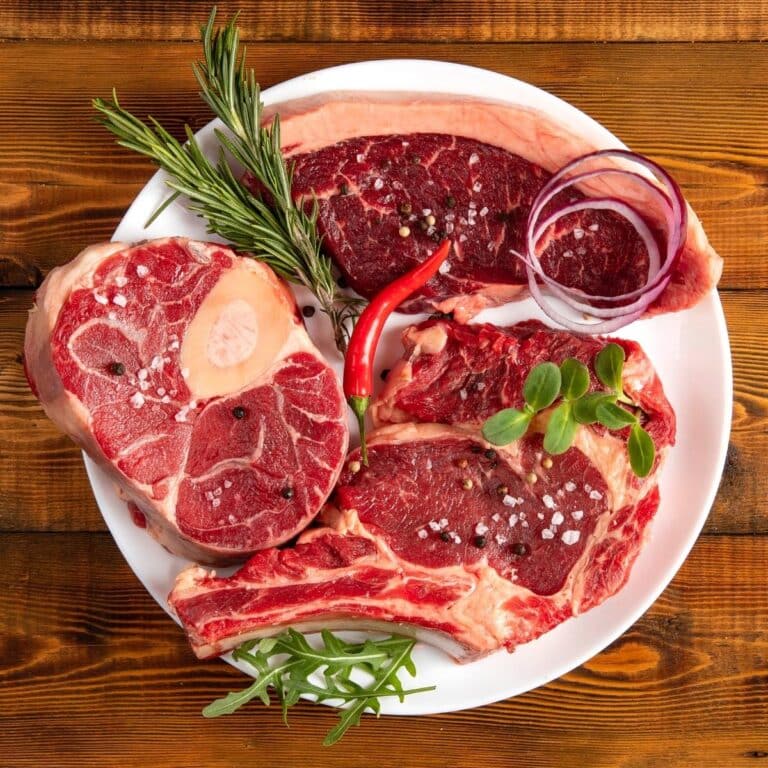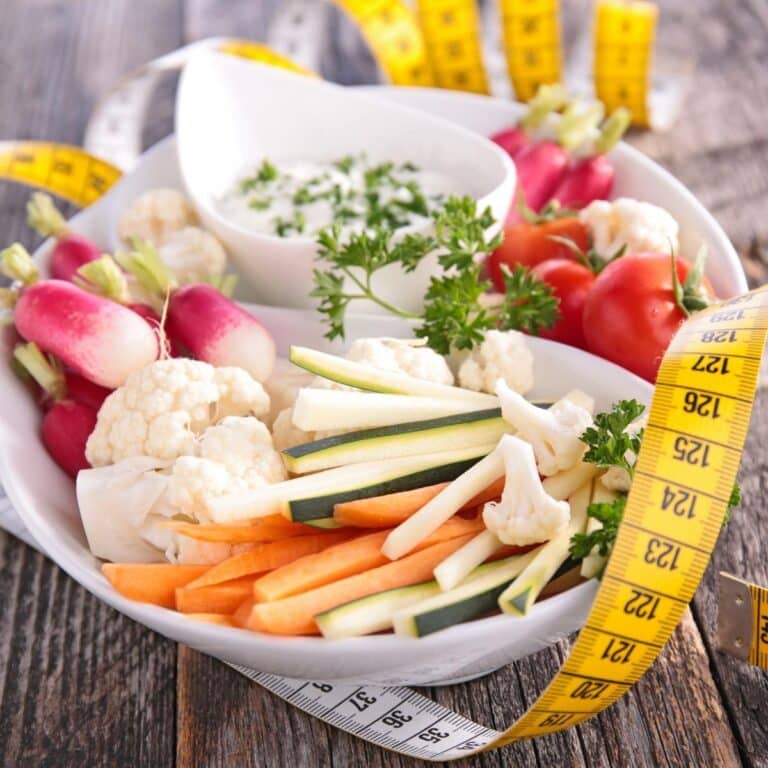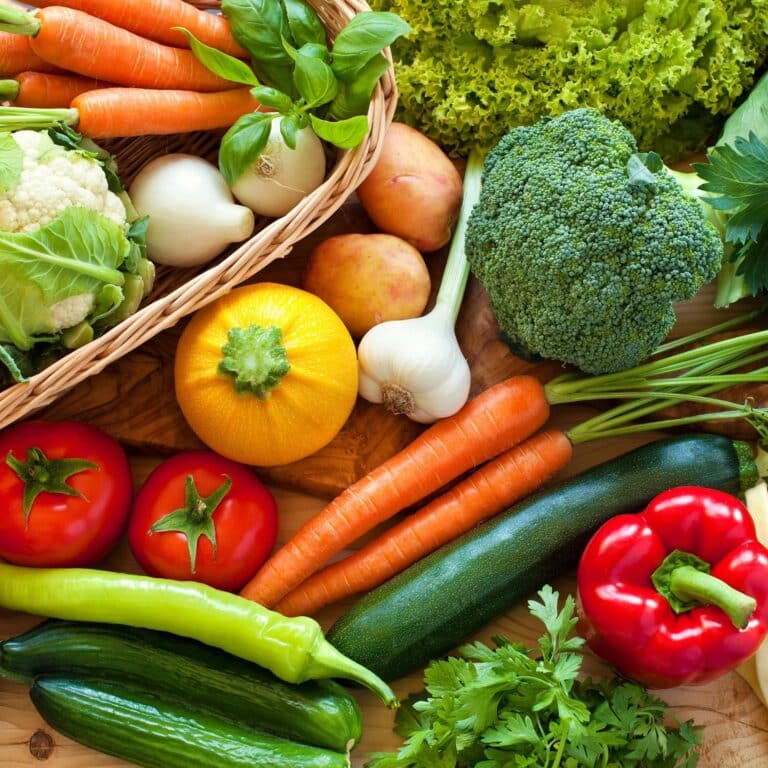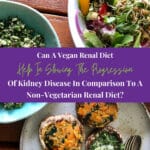Vegan Renal Diet
In most cases, following a healthy plant based vegetarian diet can lower your lipid profile. This means that there is less fat in your blood, making it easier for your body to process. This is beneficial for renal patients because there is less for the kidneys to filter through.
Plant based proteins have also been shown to reduce kidney damage and lower the amount of protein filtered through urine. All of this makes it easier for your kidneys to function.
If you are struggling with chronic kidney disease (CKD), a vegan renal diet may be a good option for you.
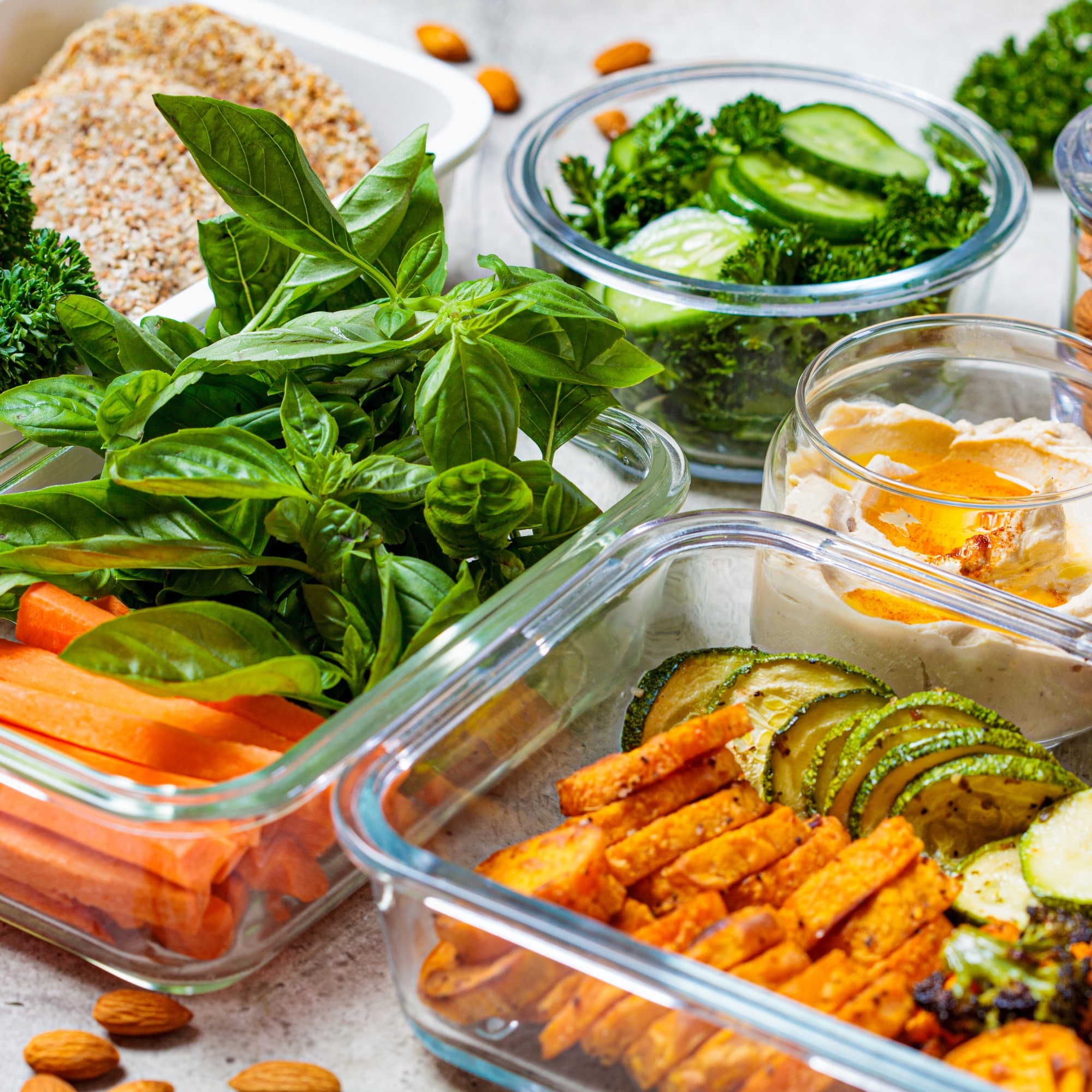
Jump to:
- Key Takeaways
- Understanding Vegan Renal Diets
- Protein Sources and Selection
- Limiting Sodium Intake
- Managing Potassium Levels
- Phosphorus in Vegan Foods
- Essential Vitamins and Minerals
- Benefits of Plant-Based Choices
- Foods to Exclude
- Snacking on a Renal Diet
- Frequently Asked Questions
- Vegan Renal Diet Could Be A Great Option For You
Key Takeaways
- Following a vegan renal diet can help lower lipid profile and reduce kidney damage.
- Plant-based proteins are beneficial for reducing the amount of protein filtered through urine.
- A vegan renal diet makes it easier for the kidneys to function and can result in less fat in the blood.
- Proper guidance and adjustments are necessary to meet protein and potassium restrictions while following a vegan renal diet.
For More Recipes and Ideas --->> Get Your Free Meals and Recipes That Are Perfect for Pre-Dialysis Diets, Pre-Dialysis with Diabetes, or Dialysis Diets.
Understanding Vegan Renal Diets
The vegan renal diet, tailored for kidney health, restricts certain nutrients while emphasizing plant-based sources of protein. It prioritizes managing phosphorus, potassium, and sodium intake.
Legumes like lentils, tofu, and chickpeas serve as excellent protein sources. Grains such as quinoa and bulgur also offer protein while meeting dietary restrictions.
This article section explores the nuances of a vegetable based diet, focusing on protein-rich options within these limitations.
Vegan Renal Diet and Nutrient Balancing Challenges
A vegan renal diet is designed to support kidney health by focusing on plant-based foods while managing nutrient intake to alleviate stress on the kidneys. This diet minimizes phosphorus, potassium, and sodium levels while ensuring adequate protein intake from plant-based sources like legumes, grains, nuts, and seeds.
However, nutrient balancing poses challenges in meeting protein needs without exceeding limits on phosphorus and potassium. Some high-protein vegan foods, such as legumes and nuts, contain significant phosphorus levels, which can strain the kidneys.
Balancing dietary protein intake with phosphorus and potassium restrictions requires careful selection and portion control of food items. Finding a variety of low-phosphorus, low-potassium plant-based proteins while meeting nutritional requirements remains a key challenge in crafting an effective and sustainable vegetable based diet.
Vegan Protein Options
Vegan protein options for a renal diet focus on balancing protein intake while managing phosphorus and potassium levels crucial for kidney health. Legumes like lentils, split peas, and chickpeas offer substantial protein but may contain higher levels of phosphorus.
Tofu and tempeh serve as versatile, lower-phosphorus protein sources. Grains such as quinoa, bulgur, and farro contribute protein with relatively lower phosphorus content. Nuts and seeds like pumpkin seeds, chia seeds, and flaxseeds provide protein and healthy fats but should be consumed in moderation due to phosphorus levels.
Careful preparation methods like soaking or sprouting legumes and leaching grains can help reduce their phosphorus content. Portion control and moderation are essential in navigating vegan protein options as alternative protein source in meat-based diets, ensuring adequate protein intake while managing kidney health and nutrient restrictions. Consulting a healthcare professional or registered kidney dietitian for personalized guidance is recommended.
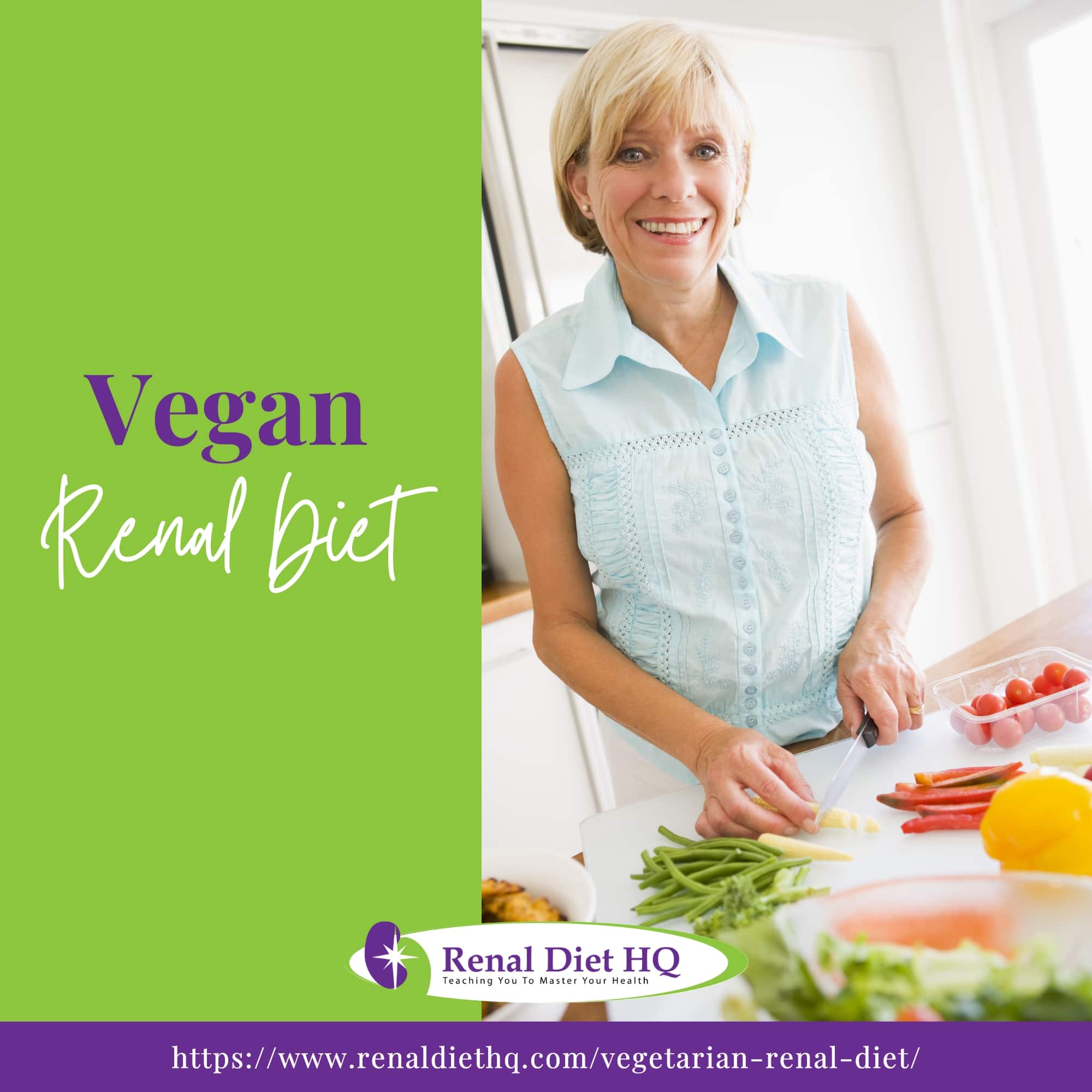
Protein Sources and Selection
For chronic kidney disease patients on a vegan diet, you'll need to carefully select proteins that are both kidney-friendly and provide all essential amino acids. Options like seitan, tofu, and tempeh are excellent choices, as they're low in phosphorus and potassium, yet high in quality protein.
It's crucial to balance these with other nutrient-dense foods to ensure your diet is comprehensive and supports your renal health.
Optimal Protein Choices
In a vegan renal diet, optimal protein choices must balance kidney-friendly nutrient profiles with a complete amino acid spectrum. Certain plant-based proteins are more favorable due to lower phosphorus and potassium levels.
- Soy Products (Tofu, Tempeh): Soybeans provide a complete amino acid profile, making tofu and tempeh excellent choices. They are also relatively lower in phosphorus compared to other legumes.
- Rice and Pea Protein Powders: These supplements can provide high-quality protein without excessive phosphorus or potassium. They are particularly useful for achieving a complete amino acid profile when combined, as rice protein is low in lysine, while pea protein is low in methionine and cysteine.
- Nuts and Seeds (in moderation): Almonds, chia seeds, and flaxseeds are good options. They offer essential amino acids, but their phosphorus content necessitates moderation.
- Whole Grains (Quinoa, Bulgur): These grains provide important amino acids like lysine. They are more kidney-friendly than other grains due to their lower phosphorus and potassium levels.
Balancing these protein sources is key in a vegan renal diet to ensure adequate intake of all essential amino acids while managing kidney health. Consulting with healthcare professionals for personalized dietary planning is essential, considering individual health and nutritional status and kidney function.
Balancing Amino Acids
Balancing amino acids in a diet, especially for those with kidney concerns, involves ensuring adequate protein intake without overburdening the kidneys. The kidneys play a crucial role in metabolizing and excreting the byproducts of protein digestion, and excessive protein can exacerbate kidney strain.
- Adequate but Controlled Protein Intake: It's essential to consume enough protein to maintain muscle mass and overall health, but not so much that it overwhelms the kidneys. This balance is especially critical in renal diets.
- High-Quality Proteins: Choosing proteins with a complete amino acid profile helps meet nutritional needs without requiring excessive intake. Plant-based proteins often need to be combined to achieve this (e.g., rice and beans).
- Monitoring Phosphorus and Potassium: Some amino acid-rich foods are high in phosphorus and potassium, which can be problematic for kidney health. Choosing lower-phosphorus and potassium options or preparing foods in ways that reduce these minerals is important.
- Regular Nutritional Assessment: Regular monitoring by a healthcare professional can help adjust protein intake based on individual kidney function and overall health status.
- Hydration: Adequate hydration aids in kidney function and helps in the processing of protein waste products.
In summary, a balanced intake of high-quality proteins, mindful of individual kidney health, is key in maintaining both adequate nutrition and kidney health. Personalized guidance from a healthcare provider or kidney dietitian is essential in achieving this balance.
Limiting Sodium Intake
When managing your kidney health on a plant based diet in patients with kidney disease, it's crucial to keep an eye on your sodium intake. You'll want to steer clear of processed condiments and opt for low-sodium cheese alternatives to help reduce the strain on your kidneys.
These mindful choices can support your overall well-being and dial in your diet to better suit your renal health needs.
Avoid Processed Condiments
Your vegan renal diet's success hinges on steering clear of processed condiments, as they often contain high levels of sodium that can exacerbate kidney issues. Understanding sodium restrictions is crucial, as is choosing vegan protein sources wisely to ensure kidney health. Here's how you can navigate this:
Understanding Sodium Restrictions & Potassium Management Tips
- Opt for fresh or dried herbs instead of salt-laden condiments.
- Reading nutrition facts labels with CKD to identify hidden sodium and potassium in processed foods.
Vegan Protein Sources, Phosphorus Free Snacks, & Vitamin Supplementation Recommendations
- Incorporate lentils and chickpeas for protein without excessive phosphorus.
- Snack on fresh fruits and vegetables rather than phosphate-rich processed alternatives.
- Discuss with your healthcare provider about tailored vitamin supplements to support your kidney health.
Choose Low-Sodium Snacks
Selecting low sodium snacks for a renal diet involves careful scrutiny of labels and opting for whole, unprocessed foods. Fresh fruits like apples, berries, or grapes are excellent choices.
Raw veggies such as carrot sticks, cucumber slices, or bell pepper strips provide crunch without excess sodium. Air-popped popcorn or homemade low-sodium popcorn seasoning can serve as a satisfying, low-sodium snack.
Nuts and seeds in moderation, preferably unsalted, offer nutrients without significant sodium content. Reading labels attentively, avoiding processed and pre-packaged snacks, and opting for homemade alternatives with minimal salt or salt-free seasonings are effective strategies for adhering to a low sodium intake in a renal diet.
Consulting with a kidney dietitian can provide tailored snack ideas that align with specific dietary restrictions and individual health needs.
Managing Potassium Levels
When managing your potassium levels on a vegan renal diet, it's crucial to recognize which foods are rich in potassium and require moderation.
You'll need to limit your intake of certain fruits, vegetables, and legumes that can contribute to elevated potassium levels.
Potassium-Rich Foods
In a renal diet, it's crucial to limit potassium-rich foods due to impaired kidney function's inability to properly regulate potassium levels, which can lead to health complications. Common high-potassium foods to avoid or limit include:
- Fruits: Bananas, oranges, avocados, melons (like cantaloupe and honeydew), and dried fruits (such as apricots, prunes, and raisins).
- Vegetables: Potatoes, sweet potatoes, tomatoes, spinach, and winter squash. Alternative cooking methods like leaching can help reduce their potassium content.
- Legumes: Beans (like kidney beans, pinto beans, and black beans), lentils, and chickpeas are high in potassium.
- Nuts and Seeds: Almonds, sunflower seeds, and pumpkin seeds.
- Dairy Alternatives: Some milk substitutes like soy milk and nut milks can be high in potassium.
- Whole Grains: Whole wheat bread and brown rice have more potassium than their refined counterparts.
It's essential for individuals on a renal diet to consult with a healthcare professional or kidney dietitian for personalized guidance and to carefully monitor their intake and make sure serum potassium levels are maintained in the normal range.
Dietary Potassium Moderation
To effectively manage your kidney health, it's essential to moderate your intake of dietary potassium. While vegan protein options are abundant, it's crucial to choose those that help in managing potassium levels.
Balancing amino acids doesn't have to come at the expense of your kidneys. Be mindful of phosphorus in vegan foods, which often accompany higher potassium contents.
| Healthy Snack Options | Potassium Content |
| Unsalted soft pretzels | Low |
| Berries with whipped topping | Moderate |
| Nut-free trail mix | Varies |
| Raw sweet peppers | Low |
Phosphorus in Vegan Foods
When managing your kidney health on a vegan diet, it's crucial to watch your phosphorus intake. Limiting processed snacks, which often contain phosphate additives, can help control your phosphorus levels. Stay informed about the ingredients in your food to ensure you're not unintentionally consuming excess phosphorus.
Limit Processed Snacks
Limiting phosphorus intake is a crucial aspect of managing a vegan renal diet, and one effective strategy is to minimize the consumption of processed snacks. Many processed foods contain added phosphates as preservatives or flavor enhancers, significantly increasing their phosphorus content. These additives are often more readily absorbed by the body compared to natural phosphorus sources, posing a greater risk for individuals with kidney concerns.
To reduce phosphorus intake:
- Choose Whole Foods: Opt for fresh fruits, vegetables, and homemade snacks over processed options.
- Read Labels: Avoid products with ingredients like 'phosphoric acid,' 'dicalcium phosphate,' or other phosphate additives.
- Prepare Homemade Snacks: Make snacks at home using whole, unprocessed ingredients, which allows for complete control over the contents.
- Limit Certain Vegan Proteins: Some vegan protein sources, like certain nuts, seeds, and legumes, are naturally high in phosphorus and should be consumed in moderation.
By focusing on whole, minimally processed foods and being vigilant about label reading, individuals following a vegan renal diet can effectively manage their phosphorus intake.
Phosphorus Additive Awareness
Awareness of phosphorus additives is critically important in a vegan renal diet. Unlike natural phosphorus found in plant foods, phosphorus in additives is almost completely absorbed by the body, potentially leading to harmful accumulation in individuals with compromised kidney function. These additives, often found in processed foods, can significantly increase the total phosphorus intake without being obvious, as they are not always clearly labeled as 'phosphorus.'
For individuals on a vegan renal diet:
- Label Reading: Understanding and identifying phosphorus additives in ingredient lists is crucial. Look for terms like 'phosphoric acid,' 'dicalcium phosphate,' or anything with 'phos.'
- Choosing Whole Foods: Prioritizing fresh, whole foods over processed options naturally limits exposure to these additives.
- Educational Resources: Utilizing resources like kidney dietitian consultations or kidney-friendly food guides can improve label-reading skills and product knowledge.
- Cooking at Home: Preparing meals at home allows full control over ingredients, reducing unintended phosphorus intake.
Maintaining phosphorus balance is essential for kidney health, making awareness and avoidance of phosphorus additives a key component of a vegan renal diet.
Essential Vitamins and Minerals
Exploring essential supplements in a vegan renal diet is crucial for sustaining optimal health. Given potential limitations in nutrient absorption and restricted food choices, identifying key vitamins and minerals that may require supplementation becomes imperative.
Understanding these specific needs ensures a comprehensive approach to maintaining nutritional balance while adhering to a plant-based, kidney-friendly diet.
Supplementing Essential Nutrients
In a vegan renal diet, certain nutrients may require supplementation due to potential deficiencies or limited intake from plant-based sources. Key supplements often include:
- Vitamin B12: Vital for nerve function and red blood cell production, B12 is primarily found in animal products. Supplementation or fortified foods ensure sufficient levels.
- Calcium: With dairy exclusion, calcium sources like fortified plant-based milk or supplements help maintain bone mineral density.
- Iron: Plant-based iron (non-heme) is less easily absorbed than from animal sources. Supplementation or pairing iron-rich foods with vitamin C aids absorption.
- Vitamin D: Vital for bone health and often deficient in vegans. Sun exposure and supplements support adequate levels.
- Omega-3 Fatty Acids: Obtained through algae-based supplements for essential fatty acids like DHA and EPA.
Supplementation, guided by healthcare professionals or dietitians, is crucial in compensating for potential nutritional gaps in a vegan renal diet.
Kidney-Friendly Vitamin Sources
In a renal diet, some essential vitamins and minerals can become deficient due to restricted intake. Opting for kidney-friendly sources can help address these deficiencies:
- Vitamin B12: Fortified foods like nutritional yeast or B12-fortified plant-based milks are kidney-friendly sources.
- Calcium: Low-phosphorus sources such as kale, bok choy, and fortified plant-based milk offer calcium without burdening the kidneys.
- Iron: Plant-based sources like leafy greens (spinach, collard greens) and beans (lentils, chickpeas) provide iron without high phosphorus content.
- Vitamin D: Sunlight exposure and fortified foods like fortified cereals or vitamin D supplements support adequate levels without exacerbating kidney concerns.
- Omega-3 Fatty Acids: Algae-based supplements or flaxseeds provide essential fatty acids with lower phosphorus levels, supporting kidney health while addressing nutritional needs.
Selecting these kidney-friendly sources assists in managing deficiencies without compromising renal health in a specialized diet.
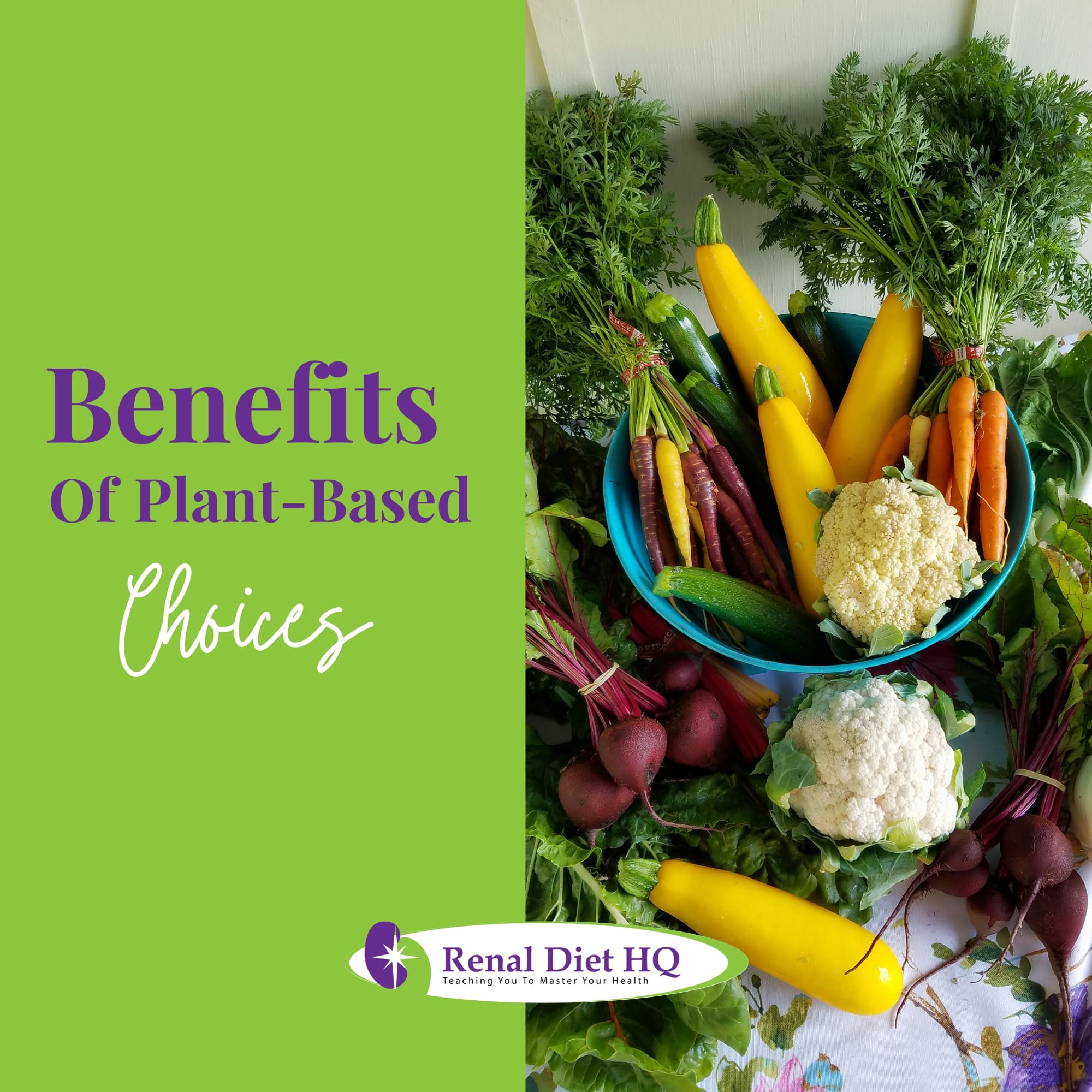
Benefits of Plant-Based Choices
Embracing plant-based choices in your renal diet can significantly improve your lipid profile, offering a heart-healthy benefit that complements kidney care.
Studies suggest that plant proteins contribute to reducing kidney damage by lessening the workload on your kidneys.
Moreover, a vegan renal diet tends to decrease the protein loss in your urine, which is a pivotal factor in preserving kidney function over time.
Improves Lipid Profile
A plant-based diet has shown promise in improving lipid profiles by emphasizing whole, unprocessed plant foods. High-fiber foods like fruits, vegetables, whole grains, legumes, and nuts can lower LDL (bad) cholesterol levels. These foods contain soluble fiber, which binds to cholesterol in the digestive tract, aiding its excretion.
Additionally, plant-based diets are naturally low in saturated fats and devoid of cholesterol, reducing intake of these artery-clogging elements. Phytonutrients and antioxidants in plants further contribute to decreasing risk of cardiovascular events by reducing inflammation and oxidative stress. Embracing a plant-based diet can thus lead to lower cholesterol levels, reduced risk of cardiovascular disease, and overall improvement in lipid profiles, promoting better heart health and well-being.
Reduces Kidney Damage
A kidney-friendly diet aims to alleviate stress on the kidneys, potentially reducing kidney damage. This diet involves controlling intake of certain nutrients like phosphorus, potassium, and sodium, vital for kidney health.
Managing these elements helps regulate blood pressure and fluid balance, easing strain on the kidneys. Limiting protein intake, particularly from sources high in phosphorus, can also ease the kidneys' workload.
Moreover, focusing on whole, unprocessed foods helps maintain stable blood sugar levels and minimizes oxidative stress, which can benefit kidney function. By adhering to a kidney-friendly diet, individuals may potentially slow down the progression of kidney damage, preserving renal function and promoting overall kidney health. Regular monitoring and guidance from healthcare professionals or dietitians are crucial in designing and maintaining such diets.
Foods to Exclude
When managing a vegan renal diet, you'll need to carefully consider which foods to exclude. High-potassium vegetables and sodium-rich condiments can exacerbate kidney issues, so it's essential to limit or avoid them.
Always check food labels for added sodium, potassium, and phosphorus to support your kidney health.
High Potassium Vegetables
Even in a vegan renal diet, which is predominantly plant-based, it is crucial to be mindful of high potassium plant foods. This caution arises because impaired kidney function can lead to challenges in regulating potassium levels in the body. High potassium can cause serious health issues, including heart rhythm disturbances and cardiovascular events.
Vegetables like potatoes, tomatoes, spinach, and avocados are rich in potassium and may need to be limited or avoided in a renal diet. Instead, choosing lower-potassium options like bell peppers, carrots, cauliflower, and green beans helps maintain a balanced intake.
It's essential to recognize that a plant-based diet, while inherently healthy, still requires careful consideration of individual nutrients for those with renal concerns. The goal is to enjoy the benefits of a vegan diet—rich in fiber, antioxidants, and phytonutrients—while ensuring it is tailored to support kidney health. Consulting with healthcare professionals for personalized dietary advice is imperative to manage potassium levels effectively in a vegan renal diet.
Sodium-Rich Condiments
In a sodium-restricted diet, particularly crucial for those with hypertension or kidney issues, it's important to be cautious about condiments, as many are surprisingly high in sodium. Common culprits to limit or avoid include:
- Soy Sauce: A staple in Asian cuisine, soy sauce is extremely high in sodium. Opt for low-sodium versions or use sparingly.
- Table Salt: The most direct source of sodium, should be minimized or replaced with salt-free seasoning blends.
- Ketchup and BBQ Sauce: Often loaded with sodium, seek low-sodium versions or use in moderation.
- Salad Dressings: Many commercial dressings are high in sodium. Consider homemade alternatives using vinegar, lemon juice, and herbs. Is lemon good for kidneys?
- Teriyaki and Hoisin Sauce: These sauces are typically sodium-rich. Use them sparingly or find reduced-sodium versions.
- Pickles and Olives: These are often brined in a high-sodium solution.
- Mustard and Mayonnaise: Generally high in sodium, they should be used in limited quantities.
By being vigilant about these condiments and seeking low-sodium alternatives or making homemade versions, individuals on a sodium-restricted diet can significantly reduce their overall sodium intake, benefiting their cardiovascular and renal health.
Snacking on a Renal Diet
When managing kidney health on a vegan diet, selecting the right snacks is crucial. You'll want to opt for options that are low in sodium, potassium, and phosphorus. It's important to pay attention to portion sizes, as even kidney-friendly snacks can become problematic in large quantities.
Always consult your dietitian to tailor snack choices to your specific nutritional needs. This will ensure that you support your renal health without compromising on taste or variety.
Healthy Snack Options
Healthy snack choices are crucial for maintaining your kidney health while adhering to a vegetable based diet. Understanding nutrient balance is essential, as is selecting the right proteins, reducing sodium, managing potassium intake, and being aware of phosphorus content.
Despite the many restrictions of a renal diet, vegetarian patients still have many options available to them for daily snacks.
- Unsalted soft pretzels
- One cup of berries with whipped topping
- Nut-free trail mix
- ½ cup red grapes
- Raw sweet peppers
- ½ cup fresh strawberries
- Berry smoothie
- Raw cauliflower with light ranch dip
- Kale chips
Portion Control Importance
You'll find that managing portion sizes is crucial when snacking on a vegan renal diet, as it helps maintain the delicate balance of nutrients your kidneys can handle. Portion control benefits include minimizing the risk of overloading your body with sodium, potassium, and phosphorus, which are particularly harmful in excessive amounts for kidney health.
When selecting proteins, opt for low-phosphorus plant options and be mindful of serving sizes to keep your intake in check. Sodium reduction strategies like choosing fresh over processed foods and using herbs for flavoring can significantly help.
Employ potassium management techniques by being selective with consumption of fruits and vegetables, and adhere to phosphorus restriction methods by avoiding foods with phosphate additives.
These steps are essential for protecting your kidney function while ensuring nutritional adequacy.
Frequently Asked Questions
Focus on calorie-dense, kidney-friendly foods like healthy fats (avocado, nuts), complex carbs (quinoa, sweet potatoes), and small, frequent meals. Experiment with flavors, herbs, and spices to enhance appetite. Smoothies with protein-rich ingredients can boost calories.
Consult a dietitian for personalized meal plans and supplements to meet calorie needs. Prioritize nutrient-dense options to support overall health despite reduced appetite.
A vegan renal diet may potentially slow kidney disease progression by emphasizing plant-based, low-phosphorus, low-potassium foods that alleviate strain on the kidneys. Its high fiber and antioxidant content support overall health.
However, individual responses vary, and research comparing its effectiveness against a non-vegetarian renal diet is limited. Consulting healthcare professionals for personalized dietary guidance tailored to kidney health remains crucial for managing kidney disease progression.
Enhance flavor in a vegan renal diet with herbs (like basil, thyme), spices (such as cumin, turmeric), citrus zest, vinegar, and low-sodium seasoning blends. Utilize garlic and onion powder, mustard, or ginger for depth. Roasting or grilling vegetables intensifies taste.
Experiment with fresh herbs for brightness. Use homemade vegetable broth or unsalted stocks. Incorporate lemon or lime juice for a tangy kick. These alternatives add zest to meals without relying on high-sodium or high-potassium ingredients.
Vegan Renal Diet Could Be A Great Option For You
We have emphasized the potential benefits and challenges of a vegan renal diet for individuals with chronic kidney disease. By focusing on plant-based proteins and limiting certain nutrients like phosphorus, potassium, and sodium, this diet can aid in reducing kidney strain and improving overall renal function.
Key elements include selecting kidney-friendly proteins, balancing amino acids, and being mindful of nutrient content in food choices. We have discussed the importance of careful planning and consultation with healthcare professionals to ensure nutritional adequacy and effective management of CKD while adhering to a vegan diet. Through informed food selections and moderation, a vegan renal diet can be a viable and beneficial option for supporting kidney health.


